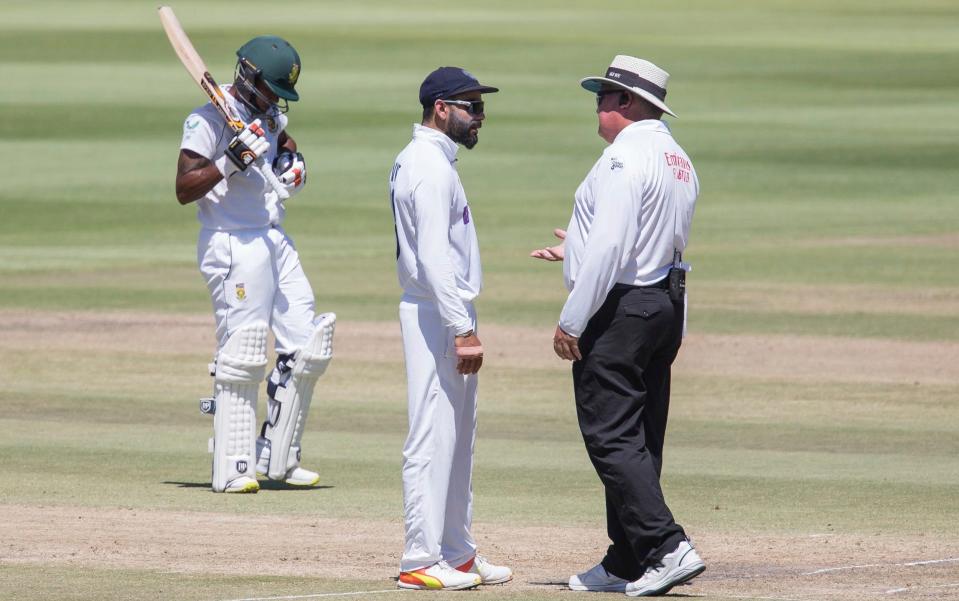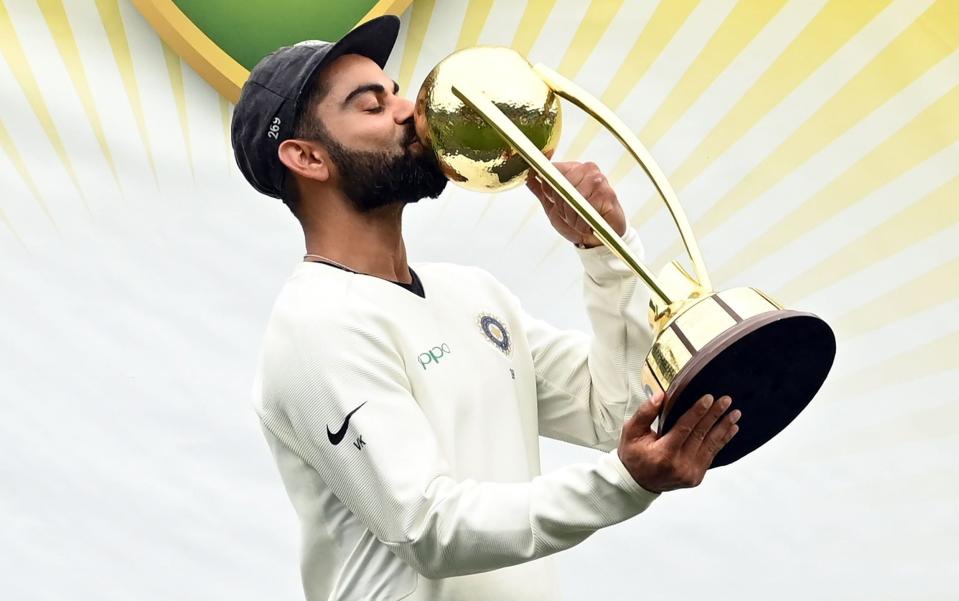Virat Kohli resigns as India captain - a transformative, but flawed leader

Virat Kohli has quit as India's Test captain following their 2-1 series defeat to South Africa.
Kohli, 33, has been in charge of the side full-time since 2015 after succeeding MS Dhoni, and helped transform them into one of the world's pre-eminent Test teams.
India won two series in Australia during his tenure - although he was largely absent for the second of those triumphs last year - together with away wins in West Indies and Sri Lanka. The team were also 2-1 up in a four-Test series in England last summer before a Covid outbreak forced the final match to be postponed, and reached the final of the inaugural World Test Championship, which they lost to New Zealand.
"It's been seven years of hard work, toil and relentless perseverance everyday to take the team in the right direction. I've done the job with absolute honesty and left nothing out there," Kohli wrote on Twitter.
"Everything has to come to a halt at some stage and for me as Test captain of India it's now. There have been many ups and downs along the journey but never has there been a lack of effort or lack of belief.
"I have always believed in giving my 120 per cent in everything I do and if I can't do that, I know it's not the right thing to do. I have absolute clarity in my heart and I cannot be dishonest to the team."
Analysis: Lionheart Kohli made India what they were
By Tim Wigmore
The notion of a captain embodying their team is often overblown. But it was seldom truer than with Virat Kohli and India. Kohli - voracious in his ambitions and work ethic, and brash with it - seemed in keeping with the spirit of a modern India, who would be second to no one.
On the pitch, Kohli’s India were seldom second either. Since Kohli assumed the Test captaincy full-time, at the start of 2015, India have won 44 of their 77 Tests, and lost just 17. For the first time in Test history, India have been the world’s leading Test side: New Zealand, the country with the second best win-loss record since 2015, have lost an identical number of Tests in this time but won 15 fewer.
Kohli was at the heart of this brilliant era for Indian Test cricket. The most obvious way was in his runs. Kohli assumed the captaincy aged 26, coinciding with the traditional peak age of batsmen. Scoring twin centuries in his opening Test as captain, as stand-in at Adelaide showed that the captaincy fitted with his batting as neatly as hand in a glove. His average of 41.1 in the ranks soars to 54.8 as captain, even if the real downward trend in his batting is inescapable. Since the tour to New Zealand at the start of 2020, Kohli is averaging just 28.1 in 15 Tests, with no centuries.
As a pure captain, Kohli is hard to evaluate. As a tactician, he could be a little impetuous, and prone to over-reacting - shuffling his bowlers, or his fields, too hurriedly. This eagerness could also manifest itself in an ugly tendency to harangue umpires, including in his last series in South Africa.

Rather than on the pitch, Kohli’s greatest impact as India captain was off-it. India’s greatest batsmen have often been mediocre fielders; Sachin Tendulkar, for instance, was curiously anonymous in the field. But, through his ferocious commitment to training and fitness Kohli has been at the vanguard of changing India into one of the best fielding sides in the world.
“He set an example for everyone, for sure,” Ishant Sharma said last year. “Take the case of fat percentage - before him I had never heard of it being spoken about in the Indian team. It was totally about skill. But now, along with skill, it is also about fitness. So if you eat well, you stay strong in the field, maintain your fitness, your energy. After what he did for himself, it totally changed the system in the Indian cricket team.”
These changes might explain why three of this Indian Test side’s totemic victories - the two in London last summer, the heist for the ages at Brisbane last January - came deep into the fifth day. On all three occasions, India overcame first innings deficits. Kohli’s team were strong front-runners, but the very best of them often came when coming from behind.

Add it all together and Kohli has presided over the finest Indian Test side in history. At home, India could even claim to being the most dominant Test side of all time. Since 2015, India have won 25 Tests at home and lost just two. They won 10 of their 32 home Tests in the Kohli era by an innings.
But the abiding hallmark of the Kohli era will be of victories in foreign lands. Until 2018, no Asian side had ever won a Test series in Australia; Kohli’s India managed the trick twice in three years, even if he was absent on paternity leave - itself, evidence both of Kohli's power and modern thinking - for the last three Tests in 2020/21.
And yet a man of Kohli’s ambitions will know that, for all the achievements of his era, with India’s resources - above all an attack with the pace and spin to thrive in all-conditions - there is also a sense that his side could have accomplished even more. The two greatest missed opportunities of the Kohli age occurred in the last year: in the inaugural World Test Championship final against New Zealand, and in the last two Tests against South Africa, when India were in sight of becoming the first ever Indian side to win a series in South Africa.
Had India won both these games, the side would have a strong claim to being the third best Test side of all, below only the 1980-95 West Indies and the Australia 1995-2007 vintage. As well as exhaustion from seven years in the role, Kohli’s behaviour in South Africa in recent days might partly be explained by the sense that a chance to be ranked with these iconic sides was fading agonisingly from view.
While his abrasive style meant Kohli's leadership was respected, but not loved, beyond India, the very seriousness with which Kohli approached Test cricket - borne of his respect for its multifarious challenges and sense of history - has been a boon for the format. Without Kohli as Test captain, and with the Indian Premier League expanded to 10 sides, 2022 already looms as bringing unwanted new challenges for the five-day game.


